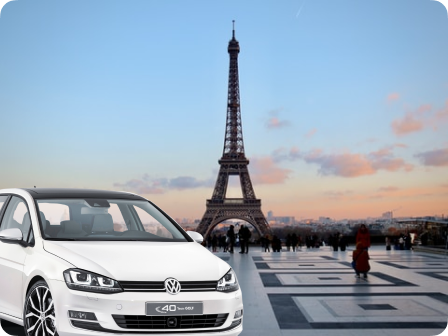 Up to
-35%
Up to
-35%
Renting a car in South Korea can be a convenient way to explore the country's beautiful landscapes and vibrant cities. Here’s a comprehensive guide to help you navigate the process smoothly.
Before you rent a car in South Korea, ensure you meet the following requirements:
Several international and local car rental companies operate in South Korea. Some popular options include:
It’s advisable to compare prices and read reviews before making a reservation.
Insurance is crucial when renting a car. Most rental companies offer basic insurance, but you may want to consider additional coverage for peace of mind. Options typically include:
Driving in South Korea is generally safe, but it’s important to be aware of local traffic rules and conditions:
Having a reliable navigation system is essential. Most rental cars come with GPS, but you can also use smartphone apps like Google Maps or Naver Map for accurate directions.
By following these guidelines, you can enjoy a hassle-free car rental experience and make the most of your travels in South Korea.
South Korea offers a variety of electric cars for rental, catering to both locals and tourists who are keen on eco-friendly transportation. Some popular electric car models available for rent include the Hyundai Kona Electric, Kia Niro EV, and the Tesla Model 3. These models are known for their efficiency, range, and advanced features, making them ideal for navigating both urban and rural areas of the country.
Here are the average daily rental rates for these electric cars in South Korea:
These rates can vary depending on the rental company, duration of the rental, and additional services or insurance options chosen. Renting an electric car in South Korea not only contributes to reducing carbon emissions but also provides a smooth and quiet driving experience, making it a popular choice among environmentally conscious travelers.



Exploring South Korea by a rented car offers the freedom to discover its diverse landscapes and vibrant cities at your own pace. Here are some top destinations to consider:
The bustling capital city is a must-visit, with attractions like Gyeongbokgung Palace, N Seoul Tower, and the lively districts of Myeongdong and Gangnam.
Known for its stunning beaches, seafood markets, and the picturesque Gamcheon Culture Village, Busan provides a perfect blend of urban and coastal experiences.
A popular getaway, Jeju Island boasts natural wonders such as Hallasan Mountain, Seongsan Ilchulbong Peak, and the Manjanggul Lava Tube.
Often referred to as "the museum without walls," Gyeongju is rich in historical sites, including Bulguksa Temple and the ancient tombs of Tumuli Park.
Famous for its traditional Hahoe Folk Village, Andong offers a glimpse into Korea's cultural heritage and hosts the annual Andong Mask Dance Festival.
With a rented car, you can easily navigate these cities and uncover the hidden gems of South Korea, making your journey both convenient and memorable.
One way car rentals in South Korea offer flexibility for travelers who wish to pick up a vehicle in one city and return it in another. This option is particularly convenient for those planning to explore multiple destinations without backtracking. Major rental companies like Hertz, Avis, and Lotte Rent-a-Car provide this service across the country.
For example, renting a car in Seoul and returning it in Busan typically incurs an additional fee. On average, this one-way rental fee ranges from €50 to €100, depending on the car type and rental duration. Similarly, a one-way rental from Incheon to Jeju Island might cost around €70 to €120.
It's advisable to book in advance and confirm the one-way rental policy with the chosen company, as fees and availability can vary. This flexibility allows for a more personalized travel experience, making it easier to enjoy South Korea's diverse landscapes and vibrant cities.
To rent a car in South Korea, you need to be at least 21 years old and have a valid driver's license. International visitors must have an International Driving Permit (IDP) along with their home country’s driver's license. Some rental companies may also require a credit card for the security deposit.
Yes, you can use your foreign driver's license in South Korea, but it must be accompanied by an International Driving Permit (IDP). The IDP translates your license into Korean and other languages, making it easier for local authorities to understand.
Additional fees may include insurance, GPS rental, child seat rental, and fees for additional drivers. Some rental companies may also charge for fuel if the car is not returned with a full tank. It's important to read the rental agreement carefully to understand all potential charges.
Yes, insurance is mandatory when renting a car in South Korea. Basic insurance is usually included in the rental price, but you may want to consider purchasing additional coverage for more comprehensive protection. Options typically include Collision Damage Waiver (CDW) and Theft Protection.
Yes, many car rental companies in South Korea have English-speaking staff and offer services in multiple languages. Additionally, major international rental companies operate in South Korea, and their websites and customer service are often available in English.
In case of an accident, contact the police immediately and inform your rental company. For breakdowns, most rental companies provide a 24-hour roadside assistance service. Make sure to have the rental company's contact information handy and follow their instructions.
In South Korea, driving is on the right side of the road. Speed limits are generally 60 km/h in urban areas and 100 km/h on highways. It's important to adhere to traffic signals and signs, and be aware that some areas may have specific restrictions, such as no parking zones. Additionally, using a mobile phone while driving is prohibited unless you have a hands-free device.